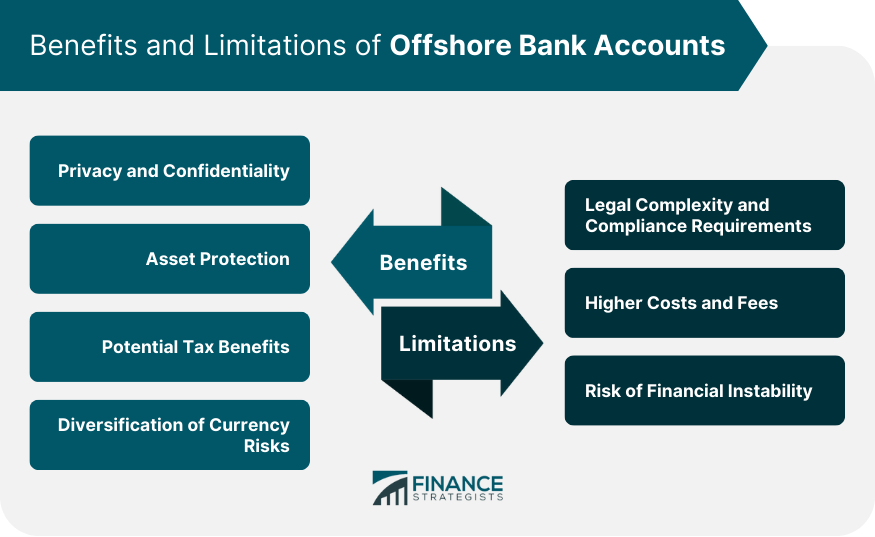Demystifying Offshore Company Formations: Just How They Run and What to Anticipate
Offshore business formations can appear complicated and enigmatic. Offshore Company Formations. These entities, often established for tax obligation benefits and privacy, operate under distinct lawful structures. Entrepreneurs might find themselves navigating with a labyrinth of policies and conformity demands. Understanding the details is crucial for success. What are the real benefits? What are the potential mistakes? A closer evaluation reveals the nuances that could impact decision-making substantially
Comprehending Offshore Companies: Kinds and definitions
Offshore business are entities established in a jurisdiction beyond a person's or company's main country of house, usually for objectives connected to tax obligation optimization, asset security, or regulatory advantages. These companies can take different forms, including limited obligation companies (LLCs), global company firms (IBCs), and offshore depends on. Each kind serves specific functions and interest various demands.
Minimal obligation companies give owners with defense from personal obligation, while international organization firms are preferred for their flexibility and very little coverage needs. Offshore trusts, on the various other hand, are utilized primarily for estate planning and property security.
The option of jurisdiction substantially affects the business's operations, as some places supply a lot more favorable legal frameworks and personal privacy securities. Offshore Company Formations. Understanding the distinctions in between these types is essential for people and businesses thinking about offshore structures, as each alternative lugs different effects for governance and compliance
The Benefits of Establishing an Offshore Firm
Developing an offshore business can supply various benefits, specifically for those seeking to improve their financial strategies and protect their possessions. One significant advantage is tax obligation optimization; several territories offer desirable tax obligation prices or exceptions, allowing companies to keep more revenues. Additionally, overseas companies can give a layer of personal privacy, protecting the identities of owners and shareholders from public analysis.
One more benefit is asset protection. By putting possessions in an overseas entity, people can secure their wide range from possible legal claims or political instability in their home nations. This framework likewise facilitates worldwide service procedures, making it possible for easier access to diverse clients and international markets.
The establishment of an overseas company can improve integrity and eminence, appealing to customers who value worldwide business practices. On the whole, these benefits make overseas business formations an attractive alternative for organizations and individuals going for economic development and protection.
Key Considerations Before Creating an Offshore Entity
Before developing an offshore entity, several essential elements should be evaluated. Legal conformity demands, tax obligation ramifications and advantages, as well as jurisdiction choice, play a considerable role in the decision-making process. Recognizing these considerations can help people and businesses browse the intricacies of overseas firm formations successfully.

Legal Conformity Needs
When taking into consideration the development of an offshore entity, understanding legal conformity requirements is vital to assure adherence to both local and worldwide laws. Prospective entrepreneur must familiarize themselves with policies controling business enrollment, reporting commitments, and operational standards in the picked jurisdiction. This consists of verifying the legal needs for shareholders and supervisors, along with ensuring conformity with anti-money laundering (AML) and know-your-customer (KYC) laws. Additionally, organizations must continue to be knowledgeable about any licensing demands particular to their sector. Engaging regional legal and economists can offer valuable understandings, ensuring that all needed documentation is prepared and sent correctly. Eventually, detailed knowledge of legal conformity aids minimize risks and fosters a lasting offshore procedure.
Tax Obligation Implications and Advantages
Numerous organization owners consider the tax obligation implications and benefits of creating an offshore entity as an essential factor in their decision-making process. Offshore companies can provide substantial tax benefits, such as reduced company tax prices, exemption from particular neighborhood taxes, and the capacity to postpone tax obligations on international income. These advantages can lead to boosted profitability and capital, making overseas frameworks appealing for international organization procedures. Furthermore, the capacity for tax treaties may additionally reduce tax responsibilities. However, it is very important for company owner to understand the intricacies included, including compliance with both neighborhood and worldwide tax guidelines. Engaging with tax obligation experts is recommended to navigate these details properly and guarantee excellent tax preparation strategies.
Jurisdiction Choice Aspects
What elements should one consider when selecting a territory for overseas company formation? Key factors to consider include tax performance, governing environment, and political stability. Jurisdictions with favorable tax obligation routines can greatly influence profitability. The regulative landscape needs to provide flexibility and convenience of conformity, enabling reliable company procedures. Political security is crucial, as it ensures the safety and security of possessions and connection of operations. Furthermore, the online reputation of the jurisdiction can influence client depend on and service partnerships. Ease of access to banking solutions and the schedule of specialist assistance solutions are likewise crucial. Ultimately, understanding regional regulations regarding possession, privacy, and reporting demands is important to identify that the offshore entity straightens with the business proprietor's objectives and legal responsibilities.
The Process of Establishing an Offshore Company
Establishing an overseas business involves a series of tactical actions that require mindful planning and conformity with global regulations. Initially, an individual should pick a suitable jurisdiction that straightens with their service purposes and supplies positive tax obligation benefits. Complying with jurisdiction selection, the next step is to select a distinct firm name and prepare the necessary documents, consisting of posts of incorporation and investor agreements.
When the paperwork prepares, it needs to be sent to the relevant authorities together with the required costs. After approval, the company will obtain a certification of unification, officially developing its legal existence. The individual must then open a company checking account to assist in monetary purchases.
Lastly, preserving an offshore firm involves adhering to continuous conformity demands, such as annual reporting and tax commitments, which vary by territory. Understanding each step is important for an effective offshore company formation.

Lawful and Regulative Framework for Offshore Companies
While establishing an offshore company can provide considerable benefits, it is important to maneuver via the complicated lawful and governing structure that governs such entities. Each territory has its very own set of laws that dictate every little thing from firm development to tax and compliance requirements. These regulations are created to stop unlawful tasks, such as cash laundering and tax obligation evasion, and often call for detailed documentation and transparency.
Key components of this framework consist of the requirement of assigning neighborhood supervisors, keeping a licensed office, and adhering to annual reporting responsibilities. Additionally, numerous territories enforce details licensing requirements for specific company activities. Understanding these lawful terms is important for ensuring compliance and mitigating risks associated with fines or legal disagreements. Engaging with legal experts that specialize in overseas business can aid in navigating through this elaborate landscape, ultimately facilitating a certified and successful overseas organization operation.
Typical Misconceptions Regarding Offshore Companies
Lots of people hold mistaken beliefs regarding offshore firms, often relating them with tax obligation evasion and prohibited activities. It is crucial to acknowledge that these entities can home operate lawfully within a framework designed for genuine business techniques. Clarifying the lawful status of overseas business can help resolve these myths and promote a much more accurate understanding of their objective.
Tax Obligation Evasion Myths
Regardless of the growing popularity of offshore firms, false impressions concerning their usage for tax obligation evasion persist. Lots of individuals wrongly believe that developing an overseas entity is solely a way to prevent taxes. Overseas companies are usually used for reputable objectives, such as property security, international company development, and financial investment diversity. The understanding that all offshore tasks relate to immoral tax obligation evasion forgets the intricacies of international tax guidelines and conformity needs. Furthermore, the huge bulk of offshore territories have applied procedures to fight tax evasion, advertising openness and info exchange. This mischaracterization can prevent genuine businesses and investors from discovering the prospective advantages of overseas firm formations while perpetuating an adverse preconception bordering these entities.
Lawful Standing Clarified
The lawful condition of offshore firms is commonly misconstrued, bring about a variety of misunderstandings. Many think these entities run in a legal gray area, presuming they are underhanded or inherently unlawful. In reality, useful reference offshore companies are legit companies created under the regulations of particular jurisdictions, designed for numerous reasons, including property protection and market expansion. Another common false impression is that overseas firms evade tax obligations entirely; however, they are subject to the guidelines and tax obligations of their home nations. In addition, some individuals believe that offshore firms can be quickly manipulated for money laundering or unlawful activities. While abuse can happen, the majority of jurisdictions enforce rigorous conformity and transparency legislations to mitigate such risks, making certain that offshore firms run within lawful structures.

Taking care of and Operating Your Offshore Firm Properly
Successfully taking care of and running an offshore company requires a critical technique that balances conformity with local guidelines and the pursuit of business objectives. Successful overseas administration includes understanding the jurisdiction's tax regulations, reporting needs, and operational laws. Employing neighborhood specialists, such as accounting professionals and legal experts, can give invaluable understandings right into traversing these intricacies.
Furthermore, establishing clear interaction channels and operational procedures is crucial for preserving effectiveness. Utilizing modern technology for task management and collaboration can improve productivity, while routine performance assesses assurance alignment with calculated goals.
Keeping durable financial records is important, as transparency promotes depend on with stakeholders and complies with worldwide criteria. Finally, being versatile to adjustments in regulation or market conditions enables offshore companies to pivot properly, guaranteeing long-lasting sustainability and development. By adhering to these concepts, company owners can maximize the benefits of their overseas ventures while mitigating dangers.
Frequently Asked Concerns
Exactly how Much Does It Price to Keep an Offshore Company Every Year?
The price to preserve an offshore firm annually differs significantly, commonly ranging from $1,000 to $5,000, depending on territory, services called for, and compliance commitments. It is important to consider extra charges for certain requirements.
Can I Open Up a Financial Institution Account for My Offshore Company From Another Location?
Opening up a savings account for an overseas business remotely is generally feasible. However, requirements might differ by jurisdiction, usually necessitating paperwork and verification procedures, which can make complex the remote application experience for individuals.
Are There Details Countries Known for Easier Offshore Business Formations?
Certain nations, such as Belize, Seychelles, and the British Virgin Islands, are renowned for their favorable laws and streamlined processes concerning overseas firm formations, attracting entrepreneurs seeking performance and discretion in organization procedures.
What Kinds of Services Are Best Fit for Offshore Companies?
Specific organizations, such as investment, ecommerce, and consultancy companies, usually take advantage of overseas companies as a result of tax discover this advantages, personal privacy, and regulative adaptability - Offshore Company Formations. These entities usually thrive in jurisdictions that advertise desirable service environments
How Can I Make Sure Conformity With Regional Regulations When Operating Offshore?
To assure conformity with neighborhood legislations when running offshore, it is important to involve lawful professionals, carry out complete research on jurisdiction laws, and maintain transparent financial records, therefore decreasing risks related to non-compliance.
